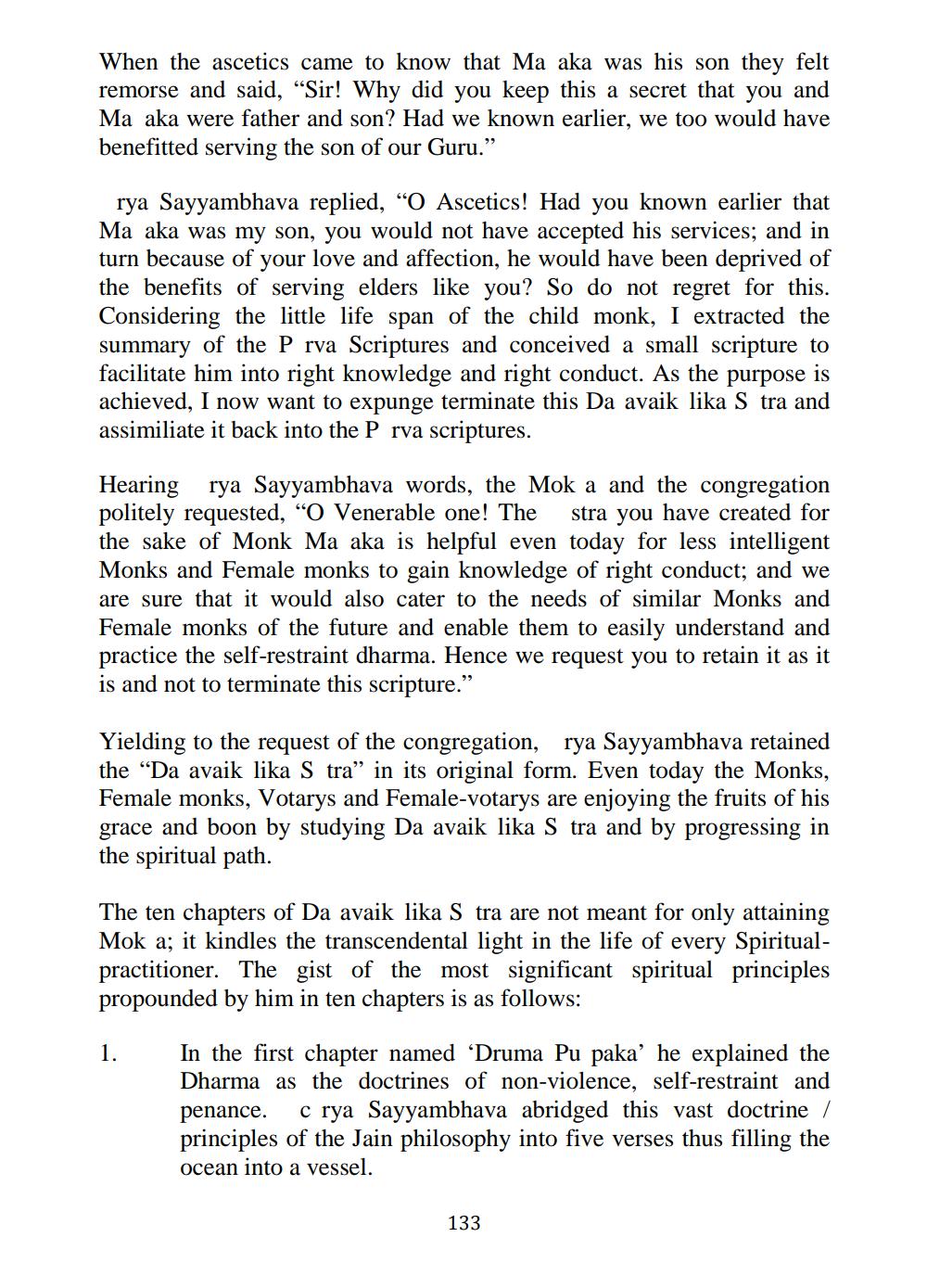________________
When the ascetics came to know that Ma aka was his son they felt remorse and said, “Sir! Why did you keep this a secret that you and Ma aka were father and son? Had we known earlier, we too would have benefitted serving the son of our Guru.”
rya Sayyambhava replied, “O Ascetics! Had you known earlier that Ma aka was my son, you would not have accepted his services; and in turn because of your love and affection, he would have been deprived of the benefits of serving elders like you? So do not regret for this. Considering the little life span of the child monk, I extracted the summary of the Prva Scriptures and conceived a small scripture to facilitate him into right knowledge and right conduct. As the purpose is achieved, I now want to expunge terminate this Da avaik lika S tra and assimiliate it back into the Prva scriptures.
Hearing rya Sayyambhava words, the Mok a and the congregation politely requested, “O Venerable one! The stra you have created for the sake of Monk Ma aka is helpful even today for less intelligent Monks and Female monks to gain knowledge of right conduct; and we are sure that it would also cater to the needs of similar Monks and Female monks of the future and enable them to easily understand and practice the self-restraint dharma. Hence we request you to retain it as it is and not to terminate this scripture."
Yielding to the request of the congregation, rya Sayyambhava retained the “Da avaik lika S tra” in its original form. Even today the Monks, Female monks, Votarys and Female-votarys are enjoying the fruits of his grace and boon by studying Da avaik lika S tra and by progressing in the spiritual path.
The ten chapters of Da avaik lika S tra are not meant for only attaining Mok a; it kindles the transcendental light in the life of every Spiritualpractitioner. The gist of the most significant spiritual principles propounded by him in ten chapters is as follows:
In the first chapter named “Druma Pu paka' he explained the Dharma as the doctrines of non-violence, self-restraint and penance. c rya Sayyambhava abridged this vast doctrine / principles of the Jain philosophy into five verses thus filling the ocean into a vessel.
133




